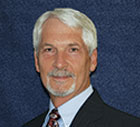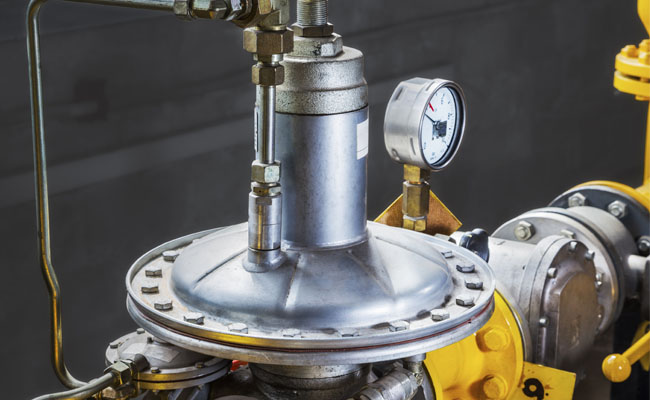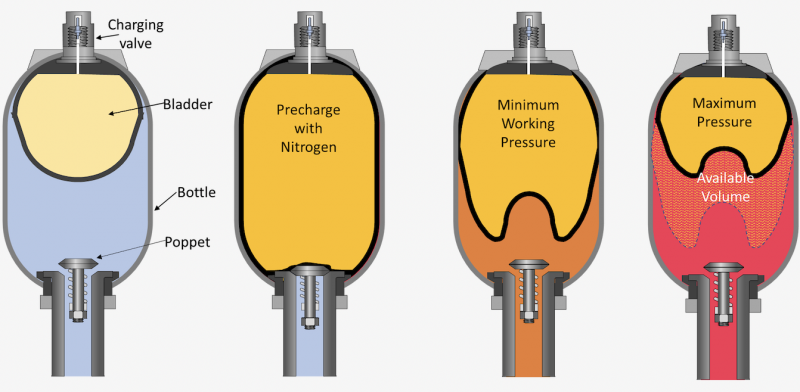Raising the bar
Fluid Power Journal encourages conversation about issues addressed in “Raising the bar.” Please use the Comment function at the bottom of each post to take part in the discussion with author Dan Helgerson.
 Dan Helgerson is Technical Editor of Fluid Power Journal, the official magazine of the International Fluid Power Society. He holds IFPS certifications as a Fluid Power Specialist, an Accredited Instructor, and a Fluid Power System Designer. He can be reached at Dan@DanHelgerson.com.
Dan Helgerson is Technical Editor of Fluid Power Journal, the official magazine of the International Fluid Power Society. He holds IFPS certifications as a Fluid Power Specialist, an Accredited Instructor, and a Fluid Power System Designer. He can be reached at Dan@DanHelgerson.com.
Raising the bar – Flow Controls: If in Doubt…
By Dan Helgerson, Fluid Power Journal Technical Editor— It’s probably the case that a high percentage of those reading this article have designed or installed a fluid power system. And I would venture a guess that only a small percentage of you thought that using a flow control wasted energy. After reading this article, you […]
Raising the bar: Focus on Energy (Revisited)
By Dan Helgerson, Fluid Power Journal Technical Editor— An electromechanical system can operate at about 96% overall efficiency. One study showed that fluid power operates at about 21% efficiency on average. This raises a question: with the price of energy the pressure to “go green” constantly increasing, why would anyone in his or her right […]
Raising the bar: The High Cost of Contamination
By Dan Helgerson, Technical Editor, Fluid Power Journal I was recently asked for information on energy lost due to contamination in a hydraulic system. I had never done a study specifically on this, and so I decided to do some analysis. If we have a 250 cm3 (15.3 in3) pressure-compensated pump driving a 450 cm3 […]
Raising the bar: I Just Need a Moment
By Dan Helgerson — I was reviewing a recent article in Fluid Power Journal and came across the term “moment” followed by a parenthetical note indicating that it was equated with torque. So I got to wondering what the difference is between moment and torque, if any. And if there is no difference, why have […]
Raising the bar: So, You Want to Make a Difference
By Dan Helgerson Something that has fascinated me for some time is how fluid power professionals must be conversant if not competent in almost every field of science. At a steel mill where I once worked, we had apprentices come in from local colleges to help out with some of the work. A few were […]
Raising the bar: Accumulators–Energy Savers or Energy Wasters?
By Dan Helgerson Do accumulators save energy or waste it? The answer is yes and yes. Let me explain. I started my fluid power career with a distributor who serviced the mobile and marine markets. We had a limited product line and an even more limited knowledge of fluid power. In some of my earliest […]
Raising the bar: Flow Means Go? Not Exactly
When designing a fluid power system, it is important to separate the concepts of flow and pressure. The pressure determines the force available, and the speed of the actuator determines flow. There is no argument there. But we need to understand that we cannot completely separate flow and pressure. Let me explain: What causes flow […]
Raising the bar: Something for Your Toolbox
I have a collection of equations floating around in my head for use when trying to come up with a fluid power solution. The problem is, many times what I am trying to find is embedded in the equation. For example, I can rattle off the power equation using torque and rpm: P = T […]
Raising the bar: Speaking of Raising the bar…
By Dan Helgerson, Fluid Power Journal Technical Editor I have an opinion about using bar vs MPa. I have had the privilege of working on the equations for the International Fluid Power Society certification study guides. I was directed to do so using ISO standards where they applied. As a result, I had to learn […]
Raising the bar: Memes to an End
By Dan Helgerson, Fluid Power Journal Technical Editor Merriam-Webster defines meme as a noun meaning “an idea, behavior, style, or usage that spreads from person to person within a culture.” It was originally coined by Richard Dawkins in 1976 in his errant attempt to explain everything within a framework of evolutionary processes, including changes in […]
Get Our Enews!
Fluid Power Journal Resources











